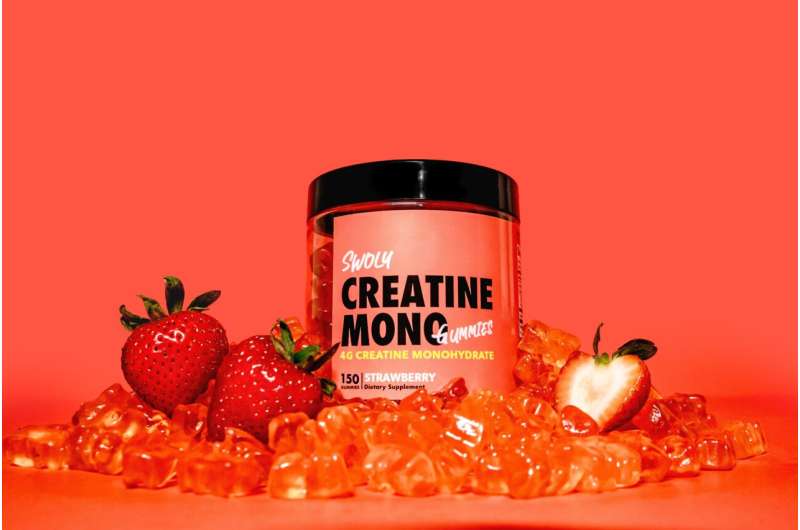Increasing Demand for Creatine Among Women and Older Adults Boosts Market Growth

Creatine sales are soaring among women and older adults as research uncovers its benefits for brain, bone, and overall health, expanding its market beyond athletic performance. Discover how this versatile supplement is transforming health trends.
Creatine, traditionally associated with gym and athletic performance, is experiencing a significant shift in its consumer base, with women and older adults emerging as key drivers of the surge in sales. This trend signals a broader acceptance of creatine's health benefits beyond muscle building, especially as the COVID-19 pandemic heightened awareness around health and wellness.
Since the pandemic began, interest in dietary supplements that promote overall health has surged. Creatine sales have soared, with major supplement retailer GNC reporting a 75% increase in sales since 2020. Notably, women now represent approximately 30% of all creatine buyers at GNC, up from 18% three years earlier. The average age of consumers also increased, reflecting a growing trend among older adults seeking health benefits from the supplement.
Originally discovered in 1832, creatine is a naturally occurring compound responsible for energy production in the body. It supports muscle growth by enabling more extensive training routines and has indirect effects on physical health. Recent research indicates that creatine’s benefits extend beyond muscle enhancement to include support for bone and cognitive health, making it relevant for a wide demographic.
Academic interest in creatine has grown steadily, with recent publications increasing by over 7% annually. Prominent companies like AlzChem Group are investing heavily in research on creatine’s potential to improve cognitive functions and support healthy aging, backing studies that explore its impact on conditions like Alzheimer’s disease.
Despite some lingering misconceptions about side effects such as kidney issues or hair loss, scientific evidence affirms that creatine is safe and effective when used appropriately. It is one of the most extensively studied supplements in sports science, and health experts like Professor Darren Candow emphasize its potential versatility.
Creatine’s rise also reflects changing perceptions stemming from past stigmatization linked to its association with doping in sports. Its portrayal during events like the 1992 Barcelona Olympics and during the steroid era contributed to misconceptions. Today, mainstream research supports its safety and health benefits, reinforcing its legitimacy as a wellness supplement.
Market analysts note that the global creatine industry is projected to reach $4.2 billion by 2030, with annual growth rates around 25%. Online sales on platforms such as Amazon have seen a 13% increase this year alone, reflecting growing consumer confidence and interest.
Influencers and wellness advocates have played a significant role in popularizing creatine. Podcasts and social media personalities now discuss its benefits for brain health, bone strength, and overall aging. Companies like Create have propelled this trend, with sales expected to reach between $40 million and $80 million by the end of 2025.
Furthermore, research is exploring creatine’s potential in improving health during menopause, aiding cognitive function in neurodegenerative diseases, and supporting healthy aging and pregnancy. These expanding applications highlight creatine’s versatility and the increasing recognition of its benefits for women and aging populations.
As the understanding of creatine evolves, its role in health and wellness is expected to continue growing, reshaping its image from a performance supplement to a valuable component of overall health management.
Stay Updated with Mia's Feed
Get the latest health & wellness insights delivered straight to your inbox.
Related Articles
Children’s Active Commuting to School Influenced by Parental Habits
A recent study reveals that parents' habits of walking or cycling to school during their youth significantly influence their children’s active commuting behaviors, promoting lifelong health and sustainability.
Expert Tips for Your Labor Day Weekend Based on Your Job Type
Discover expert tips tailored to your profession to make the most of Labor Day weekend. Whether you sit all day, do physical labor, or care for others, optimize your recovery and well-being this holiday.
Understanding Why Sleep Difficulties Increase During Summer
Summer's extended daylight hours and higher temperatures can disrupt your sleep cycle. Learn how light and temperature influence summer insomnia and discover practical tips to improve your sleep quality during the warmer months.
Scientists Investigate Methods to Improve Sleep in a Warming World
Discover how scientists are exploring ways to improve sleep quality amid rising global temperatures and heat waves, emphasizing behavioral and environmental adaptations.



